Eco-Challenge 13 - Stage 5
Eco-Challenge Fiji:
World’s Toughest Race
Wednesday, September 18th - Thursday, September 19th
Spoilers: None
Team US Military departed Camp 4 around 0900 on Day 9 in high spirits. The last leg of the race was expected to take teams less than twenty-four hours, so Team US Military was confident they would finish the following day.
The mountain bike to the rappel proved to be extremely difficult and hot. Due to Caitlin’s blisters and swollen feet, she could no longer wear her bike shoes. Instead, she chose to wear regular shoes while pedaling on her bike’s SPD pedals. Without the hard plate normally in the midsole of cycling shoes to distribute the pressure from the small clipless pedals, her running shoes were another source of pain during an already-painful portion of the race. The course took competitors along an extremely hilly road, and she struggled to keep pace with the guys. Caitlin’s feet were not the only problem--she was simply spent.
The guys stopped and periodically waited for her to catch up as the team moved forward. On one such stop they spoke with an Australian couple in Fiji for a wedding who decided to explore the interior. The conversation was short--Caitlin heard her teammates telling the Aussies about the race as she went by.
After several hours of riding, Team US Military stopped at a house on the corner of a village. There was a family outside selling coconuts. The military team stopped for a forty-five minute, much-needed coconut picnic. The woman began chopping at the coconuts with her machete unnervingly close to the two year old in her lap. Fijians are not afraid to swing around machetes--that is for sure. The whole team spent some time getting to know the ladies—and they asked if Joshua was single and needing to go home. Caitlin found this hilarious. Joshua enjoyed an exchange of some flirtatious banter as he made his retreat; the team paid the ladies for their coconuts and took off again.
Jesse, who proved to be the strongest cyclist on the team, took Caitlin’s backpack and proceeded with two packs on. Without the additional weight, Caitlin was much faster and was able to keep up. Arriving at the rappel in the late afternoon, the team started the one and a half mile hike to the waterfall where the Eco-Challenge Fiji ropes team had constructed a massive rappel.
The rappel was one of the highlights of the race. The members of Team US Military found themselves on a vertigo-inducing cliff, ready to rappel down the side of a huge waterfall. The group descended the four parallel lines together as the cool mist of the waterfall billowed up around them.
At the bottom and along the shore of the waterfall’s waters, the team considered options to retrieve the final medallion. Rather than have the entire team get drenched again, Joshua volunteered his climbing skills. This would be his chance to do for the team what Spangler had during the skin diving section. He wanted to make it look easy--to pass effortlessly through a challenge that would inevitably force other teams lacking the relevant experience to spend time getting creative. Even at such a late stage in the race, he was excited.
He wanted to make it look easy--to pass effortlessly through a challenge that would inevitably force other teams lacking the relevant experience to spend time getting creative. Even at such a late stage in the race, he was excited.
After swimming across the pool to the rock wall off the left side of the waterfall, he approached the rock with caution. His shoes were newly wet from the swim and the rock was slimy from constantly being misted by the nearby waterfall. His hands passed over the nooks of the rock feeling out what his eyes had judged to be potential handholds. After a few brief moments exploring possible routes, he set his feet, took hold of the rock, and placed trust in his climbing experience to rise to the water solo challenge. Working his way cautiously up, he scaled the fifteen feet of wet rock to reach the final Eco-Challenge Fiji medallion—the Island Stage medallion.
The team was super excited as they left the rappel. Only a bike leg, SUP leg, and ocean outrigger canoeing leg stood between them and the finish. The end was in sight!
As Team US Military was about to leave the CP, Joshua made a remark that his bike was rattling. On closer inspection, Jesse discovered all his spokes on his rear wheel were loose. Jesse performed a quick tightening job and the team was ready to go again. As they departed the rappel at dusk, Team Hombres D’Maiz rolled in. After days of crossing the islands of Fiji, there were still constant reminders that it was yet a race.
Team US Military was in a competition not just with the other teams but with time. They were in a hurry to attempt and make the next portion of the race, which would be on SUPs, before low tide. Eager to avoid having to portage their SUPs like the last time the team was on them, Jesse made promises that there would only be two big climbs remaining for the mountain bike, with the rest being downhill. This, of course, turned out to be bullshit.
Jesse made promises that there would only be two big climbs remaining for the mountain bike, with the rest being downhill. This, of course, turned out to be bullshit.
Eco-Challenge Fiji’s claim as the World’s Toughest Race would be asserted time and time again by the course designed by legendary race director Kevin Hodder. Instead, the remainder of the mountain bike leg was extremely hilly, going from punishing uphill climbs to screaming fast downhill segments. The hills were so steep that the local Fijians did not trust their cars to climb the gravel roads, opting to lay down two narrow strips of concrete to partially pave portions of them and give the laboring automobiles traction. The Fijian night was incredibly dark. Even with their headlamps, the abrupt change from riding full-tilt down balance beams of stable asphalt to bicycle-skiing on loose gravel came without warning. The consequences of losing control were grave, as many unfortunate teams found out--the injuries from at least one mountain biking accident resulted in a team’s withdrawal from the race. Despite riding as fast as they could, the ride to the SUP was taking much longer than anticipated, and Team US Military was missing their high tide window.
The military team was tired—Spangler was falling asleep while riding downhill. Sleep deprivation over the course of nine days was rearing its ugly head. The team decided to stop and take a thirty minute nap. After taking it, they got up and kept biking. After plowing through all of their caffeine pills, an hour later, they were still tired.
The team was finding that where the twenty minute naps had used to work early on in the race, they were no longer adequate. They were just too run down. Attempting to keep the breaks minimal, they stop to take another fifteen minute nap. After the alarm went off, Caitlin called out fifteen minutes. No one moved. Caitlin offered that the team needed to stop and really sleep. Everyone quickly agreed. Joshua advocated for sleeping where the team was (on the side of the road), while Spangler thought the team should try and find a farmer that would take the group of sleepwalkers in. After seeing all of the random Fijians out in the middle of the night, Caitlin had no doubt the team could find a farmer quickly at midnight.
Spangler and Joshua went on ahead while Jesse and Caitlin wrestled with her headlamp that was no longer working. Caitlin had been having a hell of a time with gear issues—she lost her odometer on the hellacious mud climb, lost a bike glove that doubled as her paddling gloves, lost her red blinking rear bike light, lost her spare headlight after attempting to use the red blinker feature for her rear bike light, shorted out both of her bike front light batteries in the rain, lost her flashlight to the team’s Fijian porter (she forgot to get it back from him), and bent her derailleur. She was down to her last light. After a few minutes, the two abandoned the attempt to fix it and just rode together using Spangler’s light. Fortunately, the team would no longer need lights for the rest of the race.
A few minutes later, the trailing pair rode up on Joshua and Spangler with a farmer. The farmer had been walking back from church (at midnight!) and offered to take the team in for the night. Once again extremely grateful for Fijian hospitality, Team US Military followed him down a narrow steep path to his home. The farmer lived alone in a one room home like most other Fijians.
As the team entered his home, he made them lemon leaf tea and gave them sugared flour rolls. Whatever qualms they had at the beginning of the race about eating and drinking the local fare went out the window. They did not hesitate. The tea and flour rolls were heavenly. They asked the farmer questions as they were all eating. Joshua could not get over what he was doing at church at midnight and must have asked him three times. They never did get a straight answer...
Whatever qualms they had at the beginning of the race about eating and drinking the local fare went out the window. They did not hesitate. The tea and flour rolls were heavenly.
The man was incredibly humble, humble in a way that only comes about by subsisting off of the land. Their host was a Christian that worked at the church and also as a farmer. He tended his crop by hand and sold it in the village marketplace. His father had died and, tragically, he was raised without one by his mother and her sister. His shelves were decorated with photos of his family and talking about them gave him joy, but he spoke of his lack of a father as if it were a still-open wound. He told the team for fun he liked to watch television in the village. He explained that he had seen teams going by and had planned to invite one into his home.
Back into the ocean…this time on modern outrigger canoes.
His home was all set up with four mattresses and pillows so it seemed like he was waiting for visitors. The racers thanked him and decided to sleep until 0600 in order to be on the SUP at high tide at 0900. Their host told them he would sleep outside, but they insisted that he sleep inside with them. The entire team slept great, with the exception of the constant crowing of the roosters all night long.
When Team US Military woke up, their host was already up and making a breakfast of fresh lemon tea and flour rolls. The rolls were delicious, the teammates were grateful for the food. He asked if the team had a phone to take a selfie but they apologized, explaining that they did not due to the rules’ prohibiting cell phones. The farmer did not own a phone, so he lamented for not being able to take a photo with his guests. He apologized for only having three spoons with which to eat, which the team member--many talking around the sugared flour rolls already hand-fed to their mouths--quickly assured him was okay..
Out of our host’s earshot, Caitlin made a remark about the roosters, and Joshua added that he had no regrets not being a vegan; Chick-Fil-A was the first place he was going to hit up when he got back home. Those roosters were pretty loud and objectively annoying.
After five hours of sleep, the team gave their host $100 Fijian and a friendship pin and were on their way. They arrived at the SUP around 0900 and saw Team Tierra Viva there. The Argentine team left as Team US Military was packing their bikes up for the last time. Unfortunately, in an effort to compensate for Caitlin’s axels coming loose during earlier portions of the race, Kevin ratcheted everything pretty tightly while overhauling it at the previous camp. Removing Caitlin’s pedal to fit it back into the bike box ended up being quite a chore.
As Team US Military pumped up their SUPs, there was a small contingent of Fijians playing local music for everyone in the area. The local music raised their spirits, and the military team danced as they played. The cameras got a great shot of the team going down to the river put-in with their SUPs as the Fijians played a local send off. It would inevitably become a cherished memory.
The SUP went well and after taking a tactical shortcut through the mangroves before entering the ocean waters, Team US Military ended up catching Team Tierra Viva on the beach transition area for the last leg of the race—the outrigger canoe. The military team set off on the canoe at the same time as Team Tierra Viva. It would become a showdown to the finish.
Caitlin Thorn is a guest blogger here. Caitlin Thorn is an accomplished endurance athlete, with numerous accolades as a distance runner, Olympic and half-Ironman distance triathlete, and adventure racer. Caitlin is a Track and Field Division I NCAA All-American, with numerous finishes in the half-marathon and marathon distances. She has been adventure racing for three years and has earned podium finishes at over 6 races and qualified for the 2019 USARA National Championship. Caitlin enjoys world travel and hiking, and when not pursuing outdoor adventure she serves as an active duty officer and engineer in the U.S. Air Force.
Caitlin can be followed via Facebook @caitlin.aub











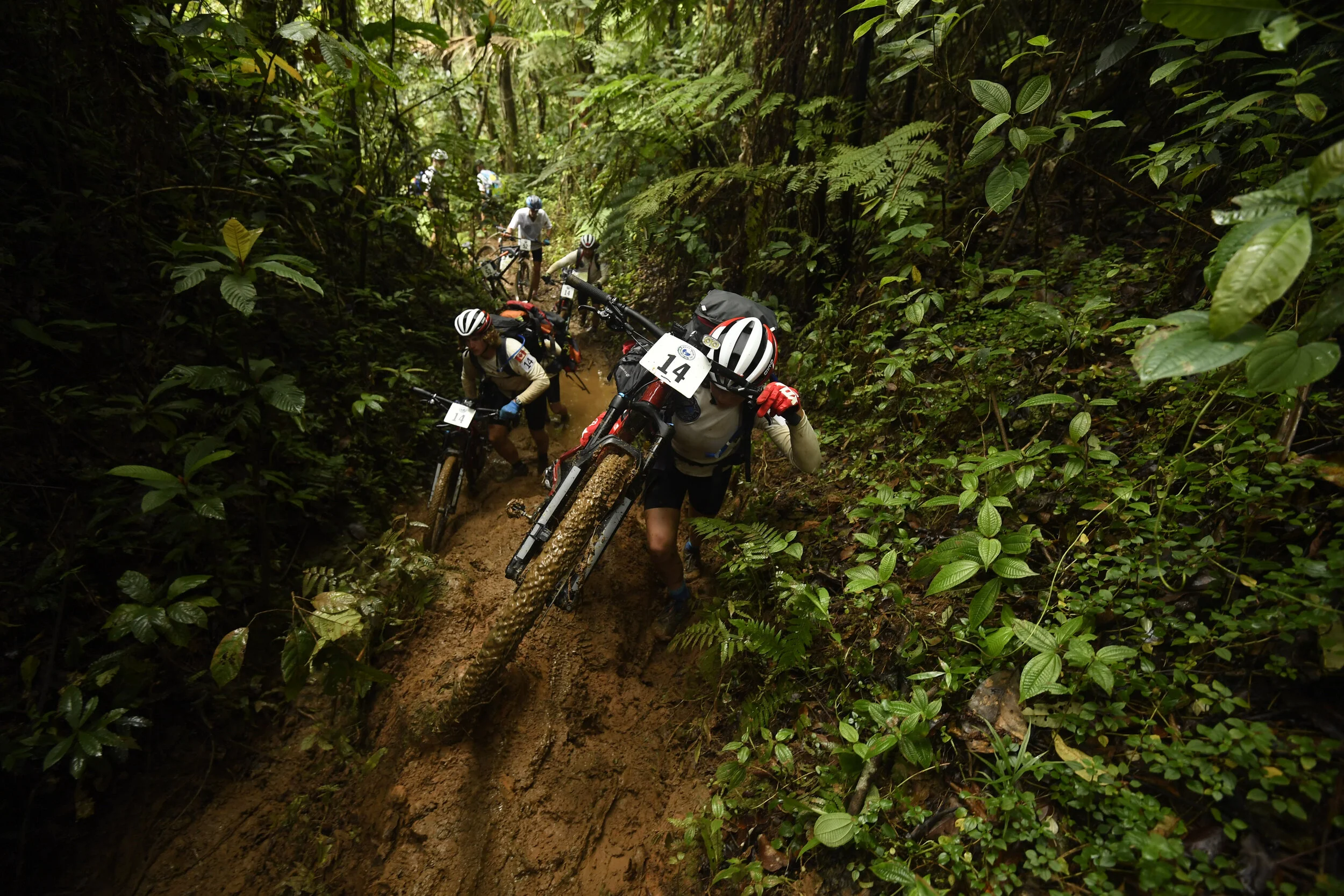



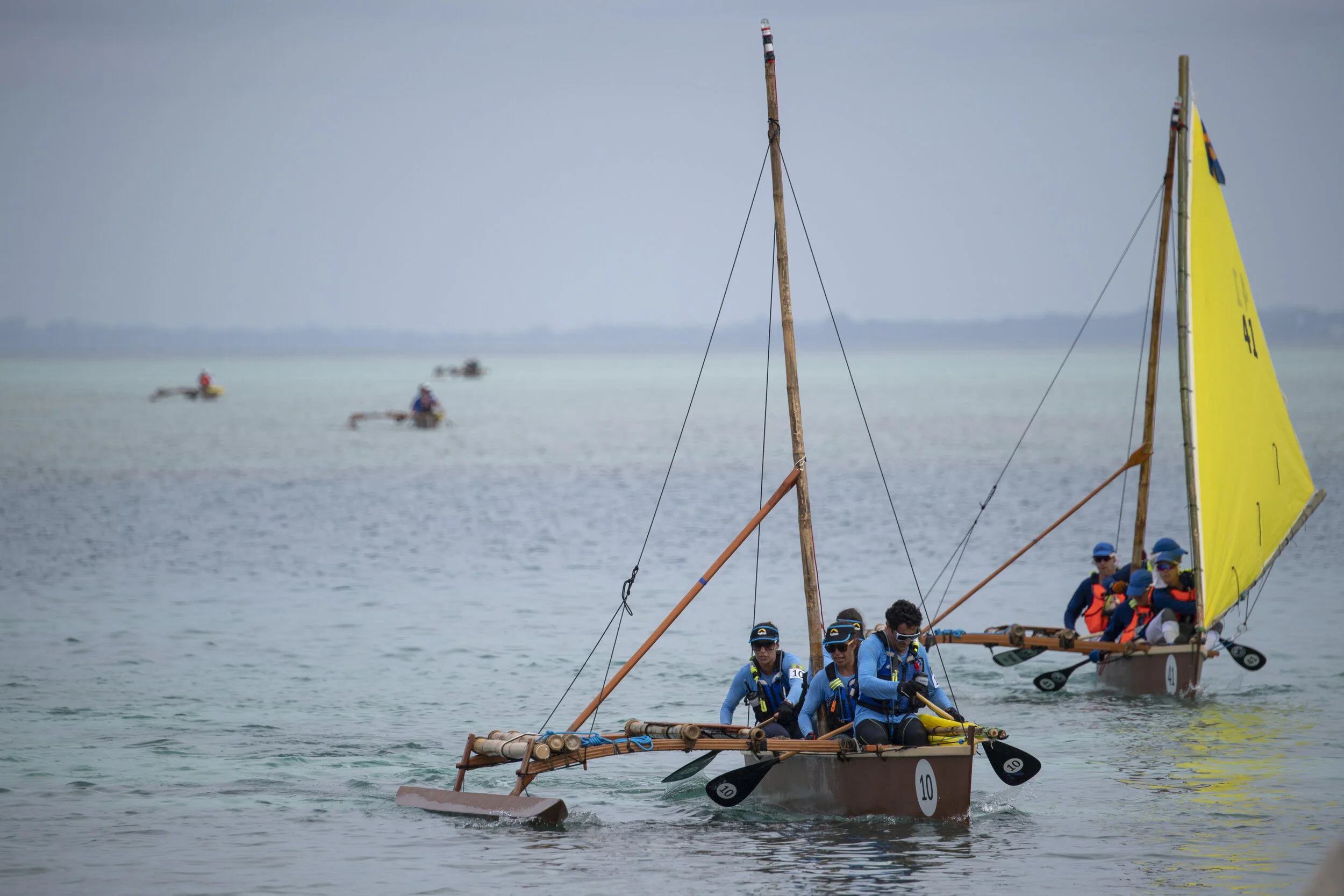
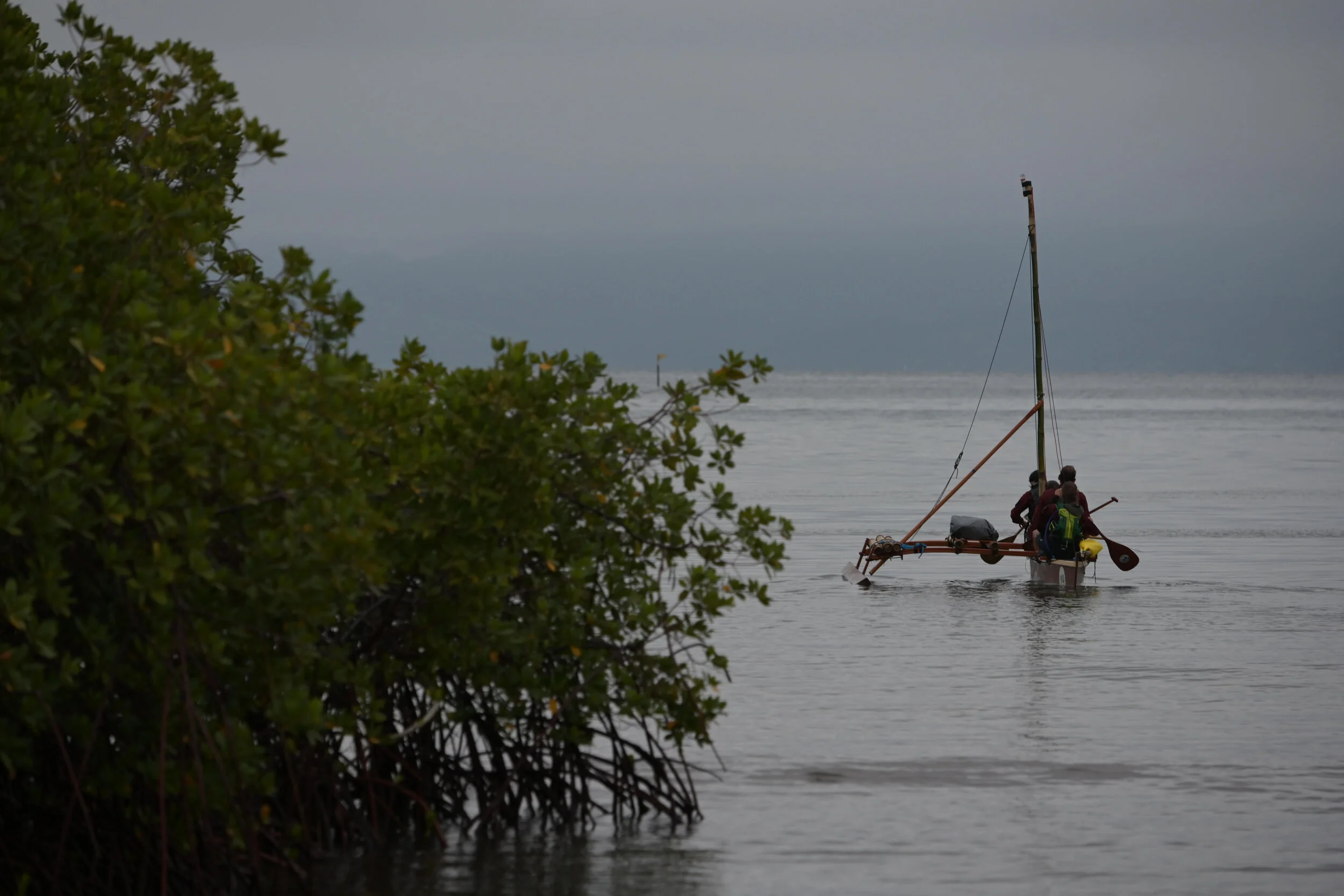
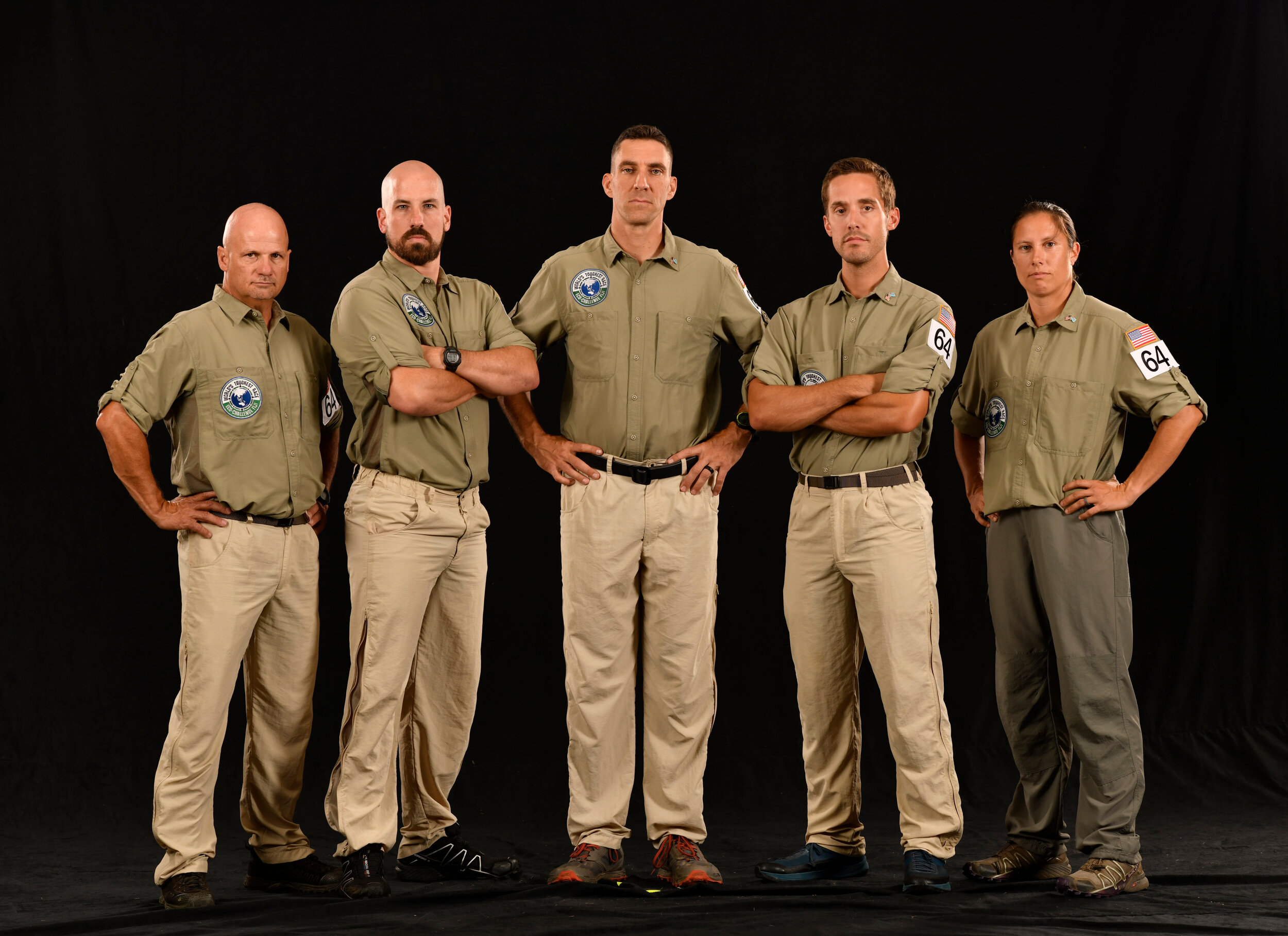

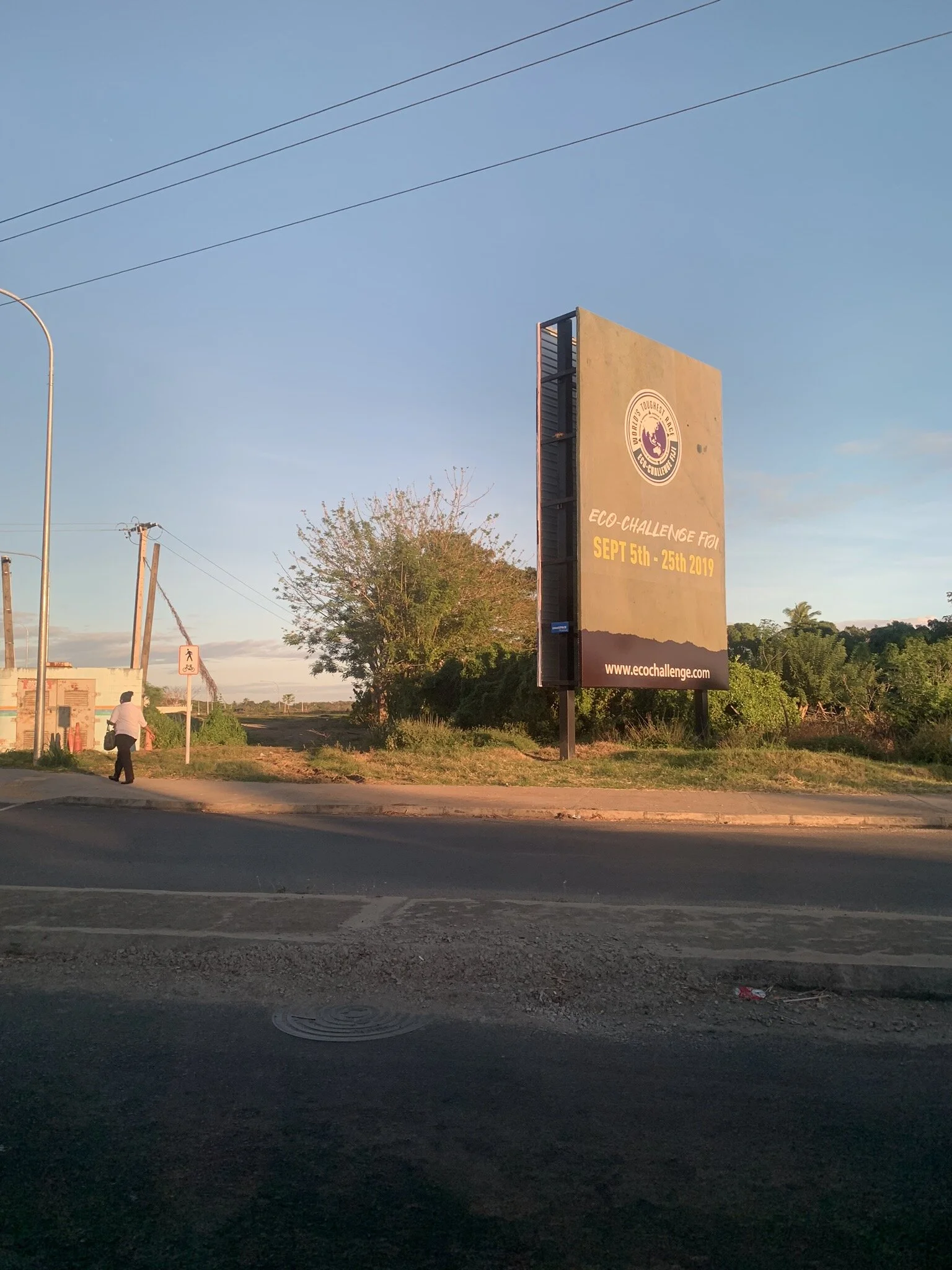
Eco-Challenge Fiji never promised to be an adventure race. Its claim was “The World’s Toughest Race”. Despite the lack of navigational challenges and jungle whacking (which was anticipated to be the hardest part of the race), Eco-Challenge Fiji was still the hardest race the members of Team US Military had ever done. The biking was tough, with incredible elevation gains and losses, and the weather added to the suck factor. This course tested the limits of racers’ mental capacity and their will to finish. Traveling across and along rocky rivers was tedious and broke some of the hardest people down. Continually slipping on rocks and banging up shins and feet tested the bounds of human fortitude and willpower.